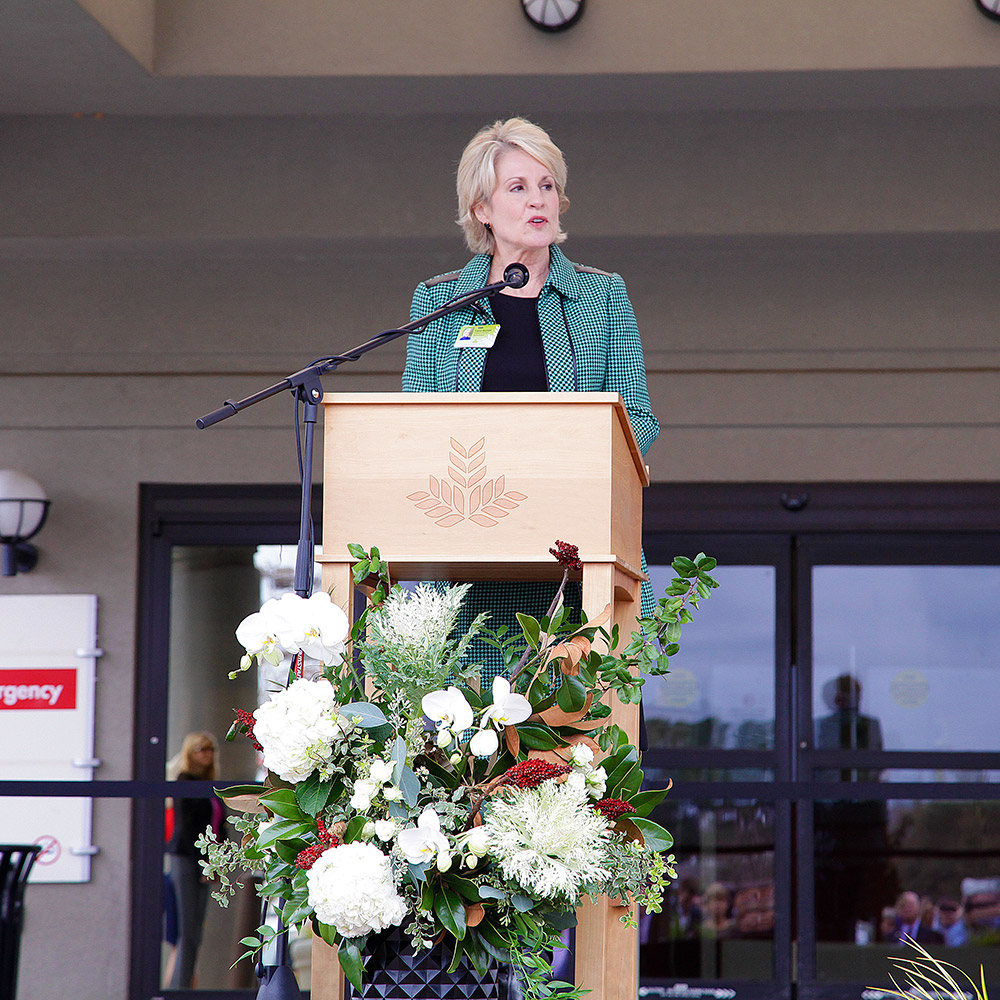
People who survive overdoses after being taken to one of Northeast Georgia Medical Center’s (NGMC’s) Emergency Departments (EDs) will now have the immediate support of individuals in recovery if they want help beginning the same journey. Officials from NGMC and the Georgia Council on Substance Abuse (GCSA) announced the new ED-CARES Peer Support Program today outside the ED at NGMC Gainesville.
The program makes NGMC the first and only hospital in Georgia to connect people surviving overdoses to Certified Addiction Recovery Empowerment Specialists (CARES) at its EDs – which saw the number of opiate overdose patients climb from a combined 281 in 2015 to 696 in 2016. The peer support of the ED-CARES Program is available seven days per week. It is already available at NGMC Gainesville, with plans to launch at NGMC Braselton and NGMC Barrow by the end of the year.
“Those of us on the front lines of the opiate crisis have witnessed first-hand the devastation it is causing for so many individuals and families,” says Mohak Davé, MD, chief of Emergency Medicine for NGMC. “An admission to an ED for an opiate overdose is a critical moment, both medically and emotionally, and our goal is to help each patient recover in a way that keeps them from needing our life-saving care again.”
The ED-CARES Peer Support Program model was developed by GCSA and is modeled after programs that have proven successful in other states. CARES are in long-term recovery themselves and receive extensive training conducted by GCSA. They also undergo a practical skills assessment to determine preparedness for providing recovery support services in a hospital emergency setting and certification that requires continuing education. Here’s how the program works:
- A person arrives at the ED with an addiction-related issue and is medically stabilized.
- Once the person is medically stabilized, the CARES is called in to help.
- The CARES checks in with hospital staff, gathers information and meets with the patient and/or family.
- After a conversation with the patient or family, options are discussed and resources are provided based on the needs and desires of the patient.
- The CARES debriefs hospital staff.
- The CARES follows up with the patient to ensure connection to local community supports and resources, including other individuals in recovery.
- Each patient is offered telephone recovery support within 10 days after discharge and will receive a follow-up call within another five days.
“NGMC has a five-year track record of taking this crisis seriously, long before it received national attention,” says Neil Campbell, executive director of GCSA. “We are proud to partner with them to connect people surviving opiate overdoses to fully-trained and long-term peer recovery coaches who can intervene, share information about traditional and non-traditional treatment services and serve as living evidence that recovery is possible.”
The ED-CARES program is funded by GCSA through the Georgia Department of Behavioral Health and Developmental Disabilities (DBHDD) for one year, with plans to extend the program further into the future based on the evaluation of its success. The program is available in the ED to people surviving any type of substance overdose.
“NGMC is tremendously grateful to GCSA and the Georgia DBHDD for the funding that aims to address the opiate crisis in our community by increasing access to treatment, reducing previously unmet treatment needs and reducing overdose deaths,” says Deborah Bailey, executive director of governmental affairs at Northeast Georgia Health System, the parent organization of NGMC. “We are proud of this partnership and look forward to saving lives in our community.”
###
ABOUT NORTHEAST GEORGIA HEALTH SYSTEM
Northeast Georgia Health System (NGHS) is a non-profit on a mission of improving the health of our community in all we do. Our team cares for more than 800,000 people across the region through three hospitals and a variety of outpatient locations. Northeast Georgia Medical Center (NGMC) has three hospital campuses – NGMC Gainesville, NGMC Braselton and NGMC Barrow – with a total of 713 beds and medical staff members representing more than 50 specialties. Learn more at www.nghs.com.

